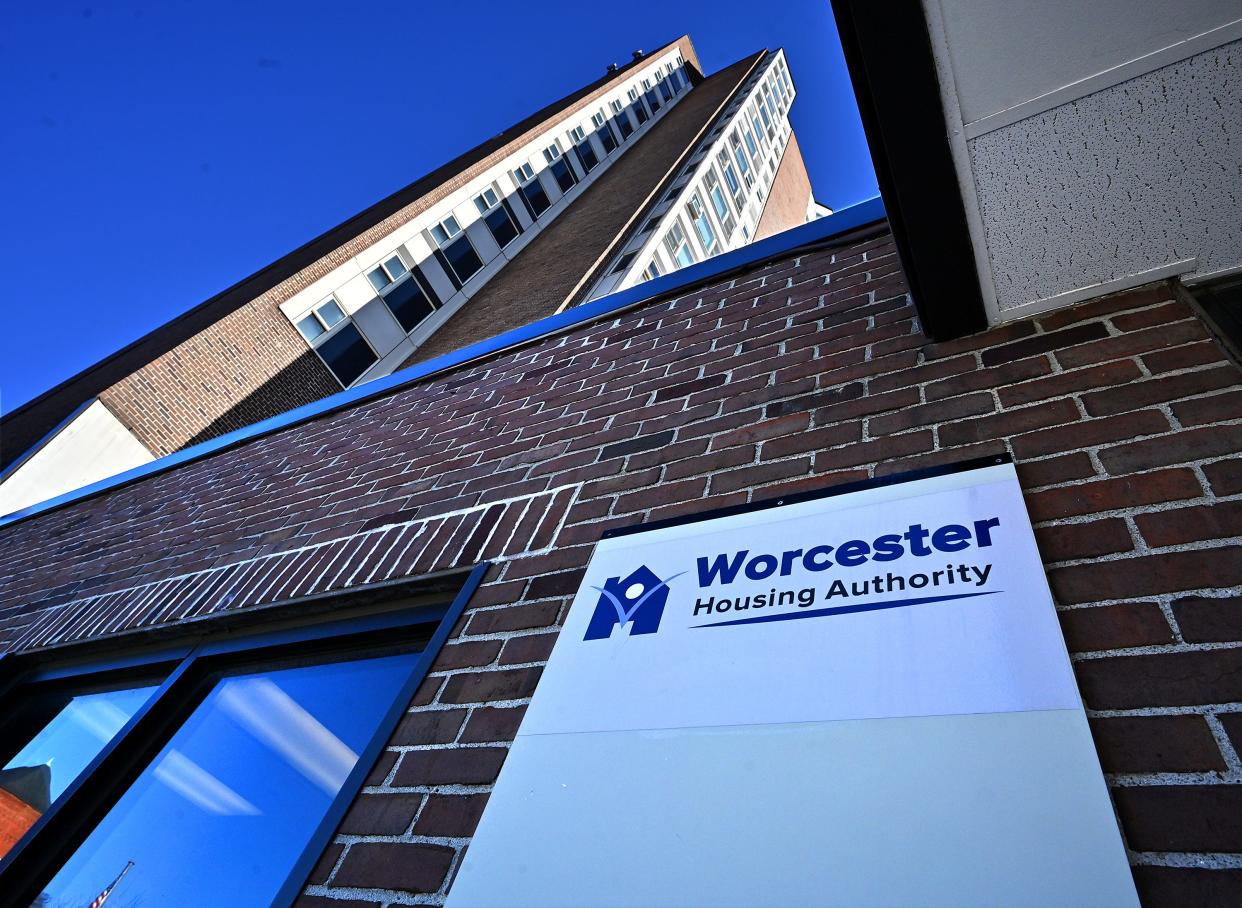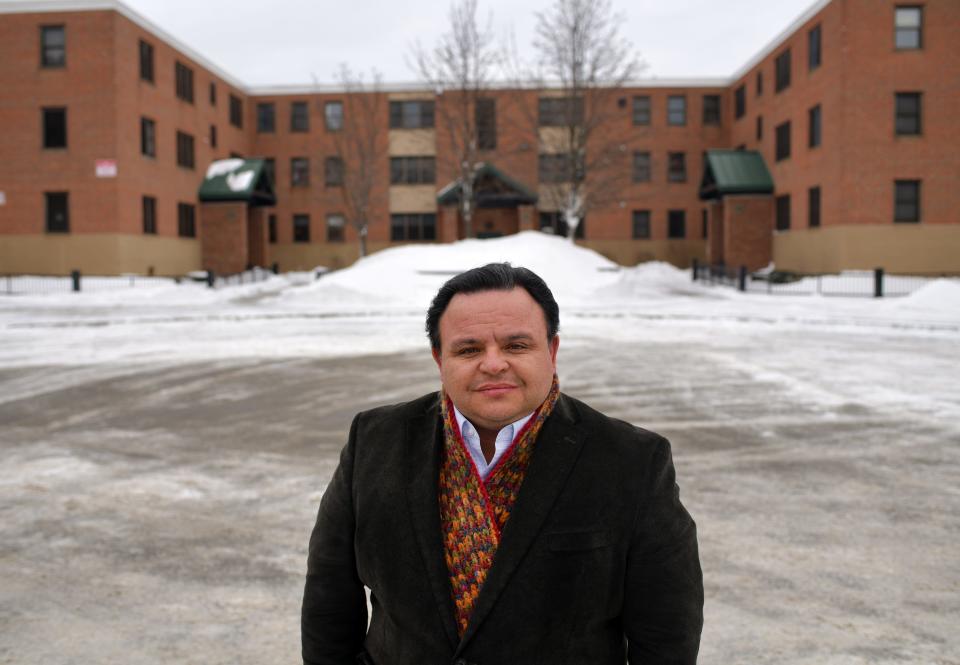State investigating claims of 'deplorable' Worcester Housing Authority conditions

WORCESTER ― After receiving claims of “deplorable” living and working conditions in some of the city’s public housing complexes, several state offices have been looking into allegations against the Worcester Housing Authority.
According to a January statement from Service Employees International Union Local 888, workers have uncovered friable asbestos, black mold, raw sewage and other hazards in residential housing units.
“Our members include public housing employees from across the Commonwealth, and these are the worst conditions that we’ve ever seen,” Tom McKeever, president of SEIU Local 888, said. “It is unconscionable that the city’s poorest and most vulnerable residents would be subjected to this type of squalor by a public housing authority. From an equity perspective, from a human rights perspective, this is just wrong.”
McKeever alleged a lack of leadership from from the housing authority's chief executive officer, Alex Corrales, in addressing living conditions.
After seeing the story posted online, Corrales reached out to the Telegram & Gazette with the following comment.
“The Worcester Housing Authority is preparing a full statement for release early next week that will bring to light the reasons and motivations behind the substance of the recent news reports,” Corrales said. “We strongly disagree with the characterization of many of the issues raised in these articles. This is largely based on the attempt by a small union group, SEIU Local 888, at the housing authority, which represents less than 10 employees, to discredit and disparage the good work of the housing authority, as result of deficiencies the agency has addressed concerning their work performance. We ask the public to please reserve judgment on these stories until they’re made aware of all the facts, which will clearly explain what the WHA has endured over the last 14 months.”
The union statement claims that Worcester Housing Authority workers continue to uncover “major health hazards” while maintaining the city’s aging public housing.
These hazards include “free-flowing raw sewage” that submerged parts of at least five buildings and allegedly went unaddressed for months by the authority’s leadership, as well as friable asbestos and black mold allegedly present in “many units.”
The statement also alleges that residents are being exposed to “high levels of boric acid,” a poison used to address insect or rodent infestations.
“We understand that these units are aging and that there is a long-term plan to replace them at some point,” McKeever said. “But you can’t turn to the thousands of people being exposed to life-threatening toxins on a daily basis and say, ‘We’ll get to your problem in 10 to 15 years.’ That’s completely unacceptable.”
He said housing authority workers have requested multiple times to be tested for exposure to the toxins they have found, but the housing authority has denied these requests.
Those workers recently voted no confidence in Corrales and urged the Worcester City Council to remove him from his job.
The City Council does not, however, oversee the Worcester Housing Authority.
According to an SEIU 888 spokesperson, the union has reached out to the governor, attorney general, state auditor and the Executive Office of Housing and Livable Communities, as well as members of the Worcester city council.
Matthew Kitsos, spokesperson for the state's Executive Office of Labor and Workforce Development, said the Department of Labor Standards conducted workplace safety and health inspections at three housing authority locations in June after receiving a complaint of hazardous conditions for employees, including possible exposure to asbestos.
The Department of Labor Standards issued a written warning and order to correct, dated Sept. 25, identifying 11 conditions requiring corrective action. These included a failure to identify asbestos-containing materials, a failure to provide adequate training regarding asbestos operations, and a failure to establish a written respiratory protection program, Kitsos said.
The Worcester Housing Authority responded on Oct. 26, providing, among other things, standard operating procedures for asbestos, documentation regarding asbestos inspections and removal conducted in response to the Department of Labor Standards report, and documentation regarding asbestos awareness training.
That case has since been closed, with no fines issued.
But according to McKeever, conditions have only gotten worse.
The Department of Labor Standards conducted another investigation of the housing authority on Dec. 7. This case is still open and active.
“The Department of Labor Standards’ top priority is ensuring and promoting worker safety, and we take all complaints of potentially hazardous working conditions seriously,” Kitsos said. “DLS conducts thorough and meticulous investigations and ensures corrective actions are taken on any issues found. Workers are encouraged to report potential hazards, and employers are encouraged to utilize DLS’s free and confidential consultation services to help recognize and control possible safety and health hazards at their worksites.”
The Department of Labor Standards’ jurisdiction is limited to worker safety issues. Thus, its investigation did not cover tenant complaints, Kitsos said.
The Executive Office of Housing and Livable Communities performed a regularly scheduled inspection of state-run Worcester Public Housing on Aug. 17 after the union had noted issues. The inspection included a sample of units at four Worcester housing developments overseen by the state.
The general conditions observed were deemed acceptable and there were no apparent health and safety concerns at that time.

In response to further concerns raised by SEIU Local 888, the Executive Office of Housing and Livable Communities will be conducting an additional inspection of 10% of the state-funded and regulated public housing units at Worcester Housing Authority on Thursday. This will exclude buildings that are vacant due to an upcoming redevelopment project. A construction advisor will also inspect the basement at Curtis Apartments, where the sewage backup occurred.
“Public housing in Massachusetts has been underfunded for decades and is in need of repairs," said Kevin Connor, press secretary for the Executive Office of Housing and Livable Communities. "Local housing authorities are often working with aging buildings and limited resources. That’s why the Healey-Driscoll Administration is asking the Legislature to authorize $1.6 billion to rehabilitate and renovate public housing as part of the Affordable Homes Act. This is a 129% increase in funding over prior authorizations and will help give our housing authorities the resources they need to build livable communities residents can be proud of.”
The Executive Office of Housing and Livable Communities oversees 512 (or 17%) of Worcester’s public housing units. The remaining 2,473 units are overseen by the U.S. Department of Housing and Urban Development.
Lauren Feltch Donoghue, senior director at the Office of State Auditor Diana DiZoglio, said she is also aware of allegations made against the Worcester Housing Authority.
“Our office was made aware of potential concerns with living conditions at the Worcester Housing Authority,” Donoghue said. “Our staff is reviewing the complaint and is researching the issue.”
Tom Matthews, spokesperson for the Office of the City Manager Eric D. Batista, said the office is aware of allegations against the housing authority.
“The City of Worcester does not oversee Worcester Housing Authority (WHA) operations,” Matthews said. “Sanitary Code falls under the City’s jurisdiction and the municipality is currently unaware of any ongoing issues. The state oversees Building Code, and we’d direct you to them for comment regarding Building Code complaints and the WHA for lease/tenant concerns.”
When asked in a second email if the City Manager’s Office wished to respond to the allegations involving city residents, Matthews said, “No further comment beyond what was previously shared.”
This article originally appeared on Telegram & Gazette: Worcester Housing Authority conditions under state investigations

